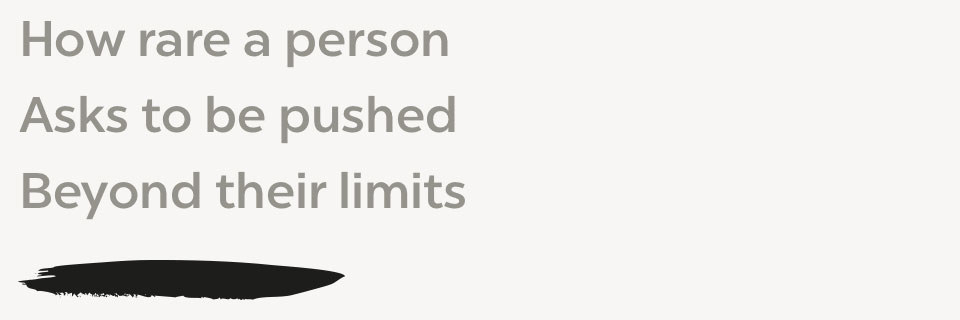I learned an amazing thing about accountability during my time as an executive at EMyth that is about to transform the way you manage.
We interviewed every exiting client to see how we could have improved. We found almost every client wanted to be held more accountable. Their coaches, of course, were shocked. There are two kinds of people: those who hold people too accountable, and those who don’t do it enough. It’s my experience about 80-90% are the latter.
It’s well known in marketing that people have a funny relationship to what they need: they don’t always know it or ask for it. Sometimes they report that they want X and then when given the choice between X and Y in a test-situation, they choose Y. This is why market research is a billion dollar industry–it’s far more sophisticated than asking people what they want and giving it to them.
Management is no different. How many employees ask you to hold them more accountable? How often have you asked for that? Yet have you ever had the feeling that your personal trainer, coach, manager, professor, etc. could have pushed you a bit harder, and you secretly wished they had?
But then another part of you feels relieved they didn’t, right? You enjoy the lack of pressure, and that’s why you don’t ask for it. You’re divided. But in the long run, you don’t get to excellence this way.
And this is the world we live in. Perhaps only about 10% of people will push themselves as hard as a good coach will. These are the high-achievers of the world. Everyone else needs someone to hold a higher bar for them. They’re no worse than the high-achievers, they just have a different set of skills and qualities.
One of the most common mistakes I see is when high-achieving leaders project their relationship to excellence onto others. They think their people operate like high-achievers, when mostly what’s true is they need to teach them how to be so.
Accountability is part of how you do that. Non-high-achievers need a force outside them to say, “I believe in you. You can do better. Let’s find out together.” And sometimes they even need to hear, “You can do better, and if you don’t, you’re going to find another job.”
How comfortable you or the employee are with this conversation is irrelevant. It’s the discomfort that stops people from using accountability. Give people what they need, not what you or they want. This is the path to excellence.
Interested in learning more about holding your team (and yourself) accountable? Check out the Clear and Open Accountability Path course and try the first lesson for FREE right now.


